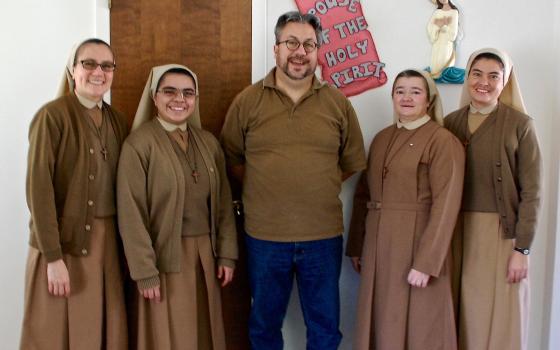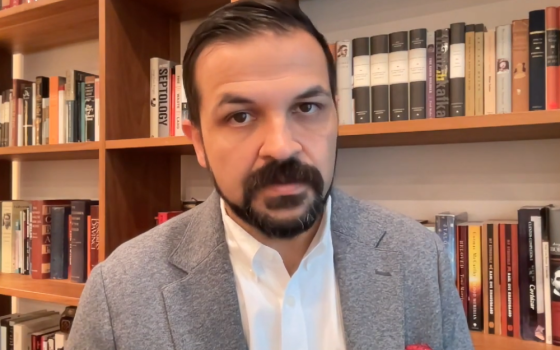
Veteran Christian Family Movement national leader, long time peace and justice advocate, Reg Weissert continues on her uncommon journey of example.
I ran into her at the November Call to Action annual gathering in Milwaukee and spoke to her about one of her ongoing projects, a Christian/Muslim women’s dialogue group. She initiated it five years ago.
Weissert, who lives in South Bend, Indiana, decided to form the group after recognizing the number of Muslims were growing in the area. She saw the need to build bonds between these more recent arrivals and some of her own Catholic friends.
Five years later, the women's group continues to meet, drawing together some thirty women each month for about two hours of sharing. About two-thirds are Christian and one-third Muslim, she says.
Weissert told me that nearly all the Christian women are Catholics, but they prefer to keep the group open to all Christians and, thus, call it a Christian/Muslim women's group.
The purpose is simple: to learn more about each other's life and faith, and through this knowledge, to get beyond stereotypes and move into understanding and friendships. All this seems to have happened as the women meet and gain deeper understandings of their needs and hopes.
The women alternate monthly between meeting in local Mosques and meeting in a classroom in Weissert’s local parish. The women share thoughts, "mostly about food, family customs, family celebrations and religious practices.” The women shy away from politics, Weissert told me. “We decided that the women themselves would decide the topics. We don’t set any strict agendas.”
“They know more about us than we know about them,” she said, making the point that American ignorance about the Islamic faith remains substantial. “It’s been an educational process.”
The meetings started after put the idea to a priest friend. He put Weissert in touch with a woman religious who had just gotten her doctorate in Islamic studies. She, in turn, suggested Weissert go to see a Muslim woman she knew.
“I went to see her and told her my idea and I asked if we could do something. She said ‘yes, I will get some of my women together and you get some of your women together and we can see if we can do something.’”

That was the beginning – five years back.
At a recent gathering the women talked about the Virgin Mary, revered by Muslims as well as Catholics. "They wanted to know how we viewed Mary. They revere Mary very highly. I think there are thirty references to Mary in the Quran.
And how has this changed the Christians in the group?
“Well, I think it makes us much more accepting. We’re over the old stereotypes. Some of the Muslim women wear scarves. People mistake that with submissiveness to their husbands, that they can’t lead their own lives. That’s very false.”
Weissert explained that the Muslim women in her group wear scarves as they associate them with modesty. “They can choose to wear the scarf or not. We had thought that everybody had to do that. But, no, some women come to the meetings with scarves; some without.”
The Muslim women in the South Bend dialogue group are of Indian or Pakistani backgrounds, Weissert said, with a few from Lebanon. None from Iraq or Saudi Arabia. The women tend to be professional women and are married to men who are also professionals., doctors, lawyers or engineers.
“In the end, it is all about respecting each other. We have learned real respect for one another.”
Weissert would like people to know that starting an “inter-religious dialogue” group is really not that difficult. Despite what it might look like from the outside, inside it’s simply women getting together to share ideas and get to know each other better. Her bottom line message: It’s not too difficult to build a bridge in your local community. It just takes a little initiative.
Though she walks now with a cane now and moves more slowly, Weissert continues to move full speed into finding ways to build bridges and to encourage the works of justice and mercy, as she had done for decades.


